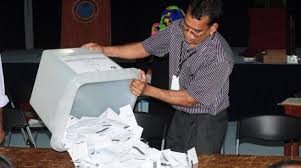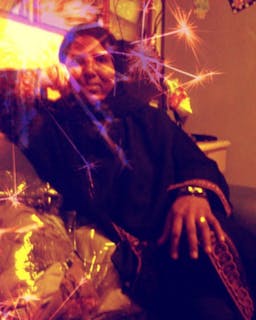I am not voting to decide my faith. It’s intact. Vote for a President!
Jan 21, 2015
Story

The Maldives took another shot at democratic elections on 7 September 2013, with a peaceful voting day. However, things look disturbing in the wake of the election results, with the candidate in the third place (the business tycoon, Gasim) accusing the elections commission for vote rigging. These accusations are not surprising given that the very President, who was “ousted” by the opposition (including Gasim) in the name of religion, succeeded in gaining the majority of votes.
The Maldives had its first democratic presidential elections in 2008. Prior to this, for 30 years, the public was given one candidate with yes/no choice every five years. This was with the backdrop of control on freedom of thought, no mechanism to hold the government accountable, the Parliament a lip service agreeing to whatever the President had to say – including putting himself up as the President for six consecutive terms.
The polarization of elite, nepotism, and narcissism were just some of the issues of the 30-year rule that rubbed people like me the wrong way. The use/abuse of religion to control the minds of the people was another. People were bombarded with preaches about loyalty to the leader, to the extent that President Gayoom, the foreign-educated Islamic scholar, was revered by many. This reverence was understandable in the context of the discord in handover of power in the past, rife with episodes of overthrowing of the monarchy, sultanate and the president, time and again. His downfall came in the hands of an opposition who dialed up anti-campaign, again abusing religion, accusing him for apostasy.
The same plight awaited the democratically elected president of 2008. A clear majority was not secured by any of the six presidential hopefuls in the first round. The incumbent president got 40.8%, while the second largest votes were secured by Nasheed (25.35%). The public sentiment was for a stop to the autocratic leadership of 30-years. All the other president hopefuls followed in step with the second leading contestant to form a coalition, thereby securing the required majority for Nasheed in the second round. The coalition government did not function though. The bold steps being taken by Nasheed in making the necessary changes in the economy, and to social welfare and education won the hearts of the populace, thereby diminishing the opportunity for anyone else to come to office in the next round of elections in 2013. Something dramatic and drastic was needed.
It came as a shock to many when President Mohamed Nasheed was “forced” to resign in February 2012, two years before his term was over. The card that was played was religion; with increasing freedom of expression, people started to voice out their thoughts on all sides. Fundamentalist religious view flourished, discourse on homosexual rights gained momentum, talks about moderation in religion also grew louder and so did rhetoric on the freedom of choice of religion. Prior to 2008 all this was held in check, suppressed and hidden. These sudden outbursts of thoughts and ideologies were directly attributed to the new government and its political party, and it became increasingly labelled as “laadheenee” (anti-religious).
As a Muslim who believes in moderation, I believe religion and faith lies between us and our Creator. My views don’t necessarily have to be the same as the next person. The problem comes when some people cannot accept this mind frame. There are religious scholars and self-proclaimed pious people who believe there is only one right way. Mixing politics and religion is something that requires further non-judgmental discourse.
If there is one thing that the people of Maldives can associate with unanimously, it is their belief in Islam, and His prophet, Mohamed(SAW). History has shown that this very sentiment has been abused by politicians to coerce votes out of the ordinary citizens. What we witness today is one group calling for the people to fear Allah and to not vote a political party ‘known for alternative narratives’. Their view is that the 45.5% votes the ousted President received in the first round of 2013 elections proves the “irreligiousness”of this Muslim nation. I stand to defy that. I am a proud Muslim. I stand against fear-mongering religious incitement. I stand for democracy!
This article is part of a writing assignment for Voices of Our Future a program of World Pulse that provides rigorous digital empowerment and citizen journalism training for grassroots women leaders. World Pulse lifts and unites the voices of women from some of the most unheard regions of the world.




